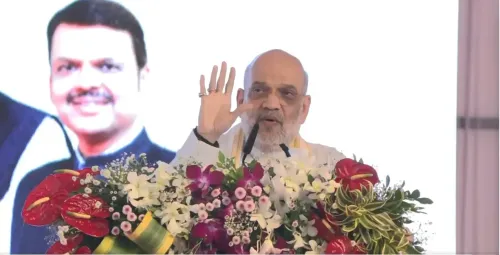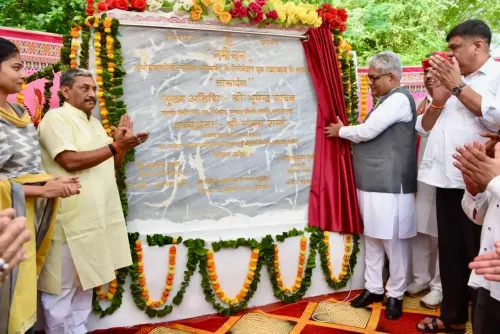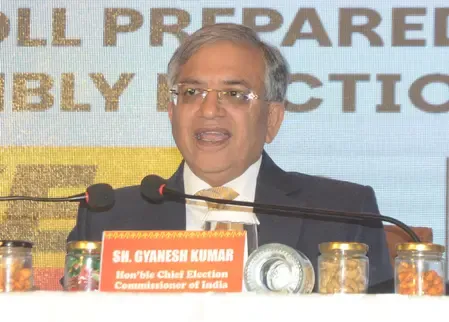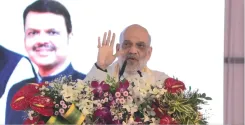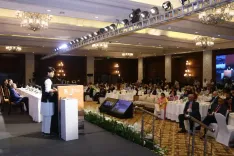How Did the Cough Syrup Crisis Lead to Two Deaths in Betul?

Synopsis
Key Takeaways
- Two children died after allegedly consuming Coldrif cough syrup.
- Medical investigations are underway to determine the cause of death.
- Coldrif syrup has been banned in Madhya Pradesh due to safety concerns.
- The government is providing compensation to affected families.
- Increased scrutiny of medical practices and pharmaceutical regulations is expected.
Betul, Oct 5 (NationPress) The Coldrif cough syrup crisis in Madhya Pradesh has escalated tragically with the reported deaths of two young children in Betul district, who allegedly consumed the same medicine linked to multiple fatalities in Chhindwara.
This incident has ignited fresh outrage and amplified scrutiny of medical practices in the region.
Reports indicate that the children - Kabir (4) from Kalmeshwar village and Garvit (2.5) from Jamun Bichhua village in the Amla block - were taken to a private clinic in Parasia, Chhindwara, presenting with fever.
The attending physician, Praveen Soni, allegedly prescribed Coldrif syrup along with other medications.
Rather than improving, both children's conditions worsened rapidly, culminating in their deaths under suspicious circumstances.
In a statement to IANS, Manoj Hurmade mentioned, "It is too early to ascertain the exact cause of death for the two children at this point. A team of four doctors has been formed to investigate the situation. They will engage with the families, collect the children's complete medical histories and treatment records, and consult with experts at Hamidia Hospital and the All India Institute of Medical Sciences (AIIMS) in Bhopal, to which both children were referred by a local physician. A full review is necessary before confirming the cause of death. However, it is confirmed that the parents first consulted Praveen Soni of Parasia, bordering Betul district, and initiated treatment for fever and cough under his care.
Both children initially sought care from Soni, who later referred them to Government Hamidia Hospital, Bhopal, and All India Institute of Medical Sciences.
"One of them passed away in Hamidia Hospital while the parents of the other child took him to Betul, where he died at home," Hurmade stated further.
Family members assert that the same syrup, now banned across Madhya Pradesh, was responsible for the tragic outcome. They expressed that they trusted the doctor, but the medicine worsened their children's conditions.
The Coldrif syrup, produced by Sresan Pharmaceuticals in Tamil Nadu, was found to contain 48.6 percent diethylene glycol (DEG) - a toxic industrial solvent known to cause kidney failure and death.
The Tamil Nadu Drug Control Directorate classified the syrup as "Not of Standard Quality (NSQ)" after assessments at the Drug Testing Laboratory in Chennai.
To date, 14 child fatalities have been confirmed in Chhindwara district, with several others hospitalized.
The Madhya Pradesh government has announced Rs 4 lakh ex-gratia for each affected family and is covering the full treatment costs for surviving victims.
A statewide ban has been enforced on Coldrif syrup and all products manufactured by Sresan Pharmaceuticals.
Soni, the physician who allegedly prescribed the syrup to many of the affected children, has been taken into custody.
An FIR has been filed under various sections of the Drugs and Cosmetics Act and the Bharatiya Nyaya Sanhita.
The Central Drugs Standard Control Organisation (CDSCO) has initiated risk-based inspections at pharmaceutical units across six states, including Tamil Nadu, Madhya Pradesh, and Maharashtra.
The Union Health Ministry has also issued advisories to all states, urging caution in prescribing cough syrups to children under two years old. The deaths of Kabir and Garvit have raised serious concerns regarding the continued distribution of banned medicines and the accountability of private practitioners.

